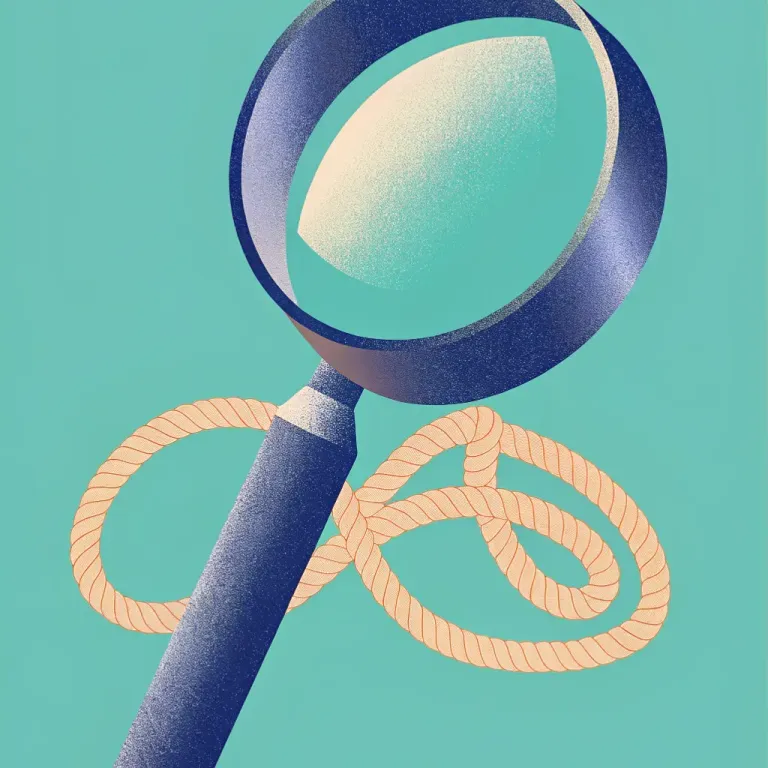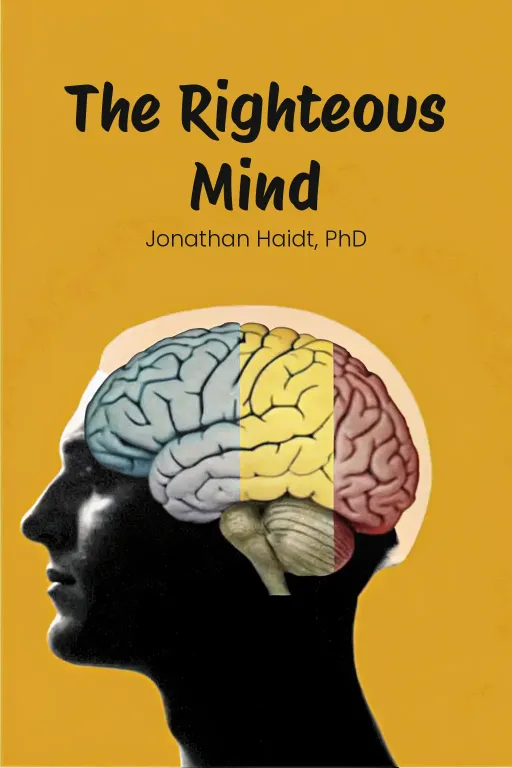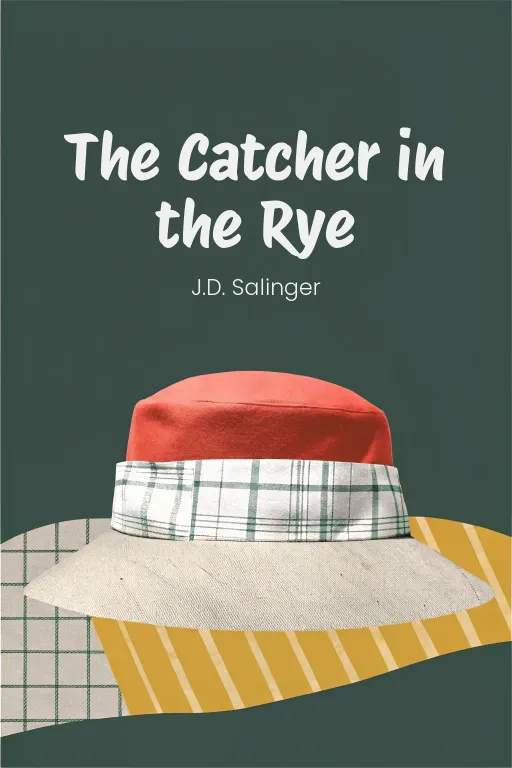
Think Smarter: Escape the Tribal Mindset
Podcast by The Mindful Minute with Autumn and Rachel
A Self-Help Book for Societies
Think Smarter: Escape the Tribal Mindset
Part 1
Autumn: Hey everyone, welcome back! Today, we're diving into a really compelling idea – something that might explain why things feel so… fragmented lately. You know, even with all this progress we keep hearing about. Rachel: Okay, Autumn, you've piqued my interest. Let me take a wild guess – is it about how we're, like, collectively losing our minds or something? Autumn: You're not far off, Rachel. This book we're exploring presents a framework called the "Ladder" to explain it. Think of it as a way to map out how people process information – from really solid, evidence-based reasoning at the top, all the way down to these very fixed, tribal ways of thinking at the bottom. Rachel: Ah, so we're basically doing the intellectual limbo – how low can we go? Sounds…fun. Anything else this book wants to tell us while we're down there? Autumn: Plenty! It looks at how we seem to be getting stuck in these lower levels of thinking, yeah? Where you get a lot of polarization, cancel culture, tribalism… things that “really” mess with our ability to have a reasonable conversation. It especially focuses on the impact of what they call Social Justice Fundamentalism, and how suppressing dissenting voices is changing things in academia, media, even democracy itself. Rachel: Okay, so is this whole episode going to be doom and gloom? Or are we getting a survival kit for this so-called intellectual apocalypse? Because I could use one. Autumn: <Enthusiastically> Good point! No, no – we're going to break down three key things. First, we'll explain this "Ladder" in detail, you know? How it sorts out our thinking styles, from the super curious "Scientists" to the hardcore "Zealots." Second, we'll look at why society seems to be backsliding into this tribal mess, despite all the progress we're making. And third, we’re going to get into this ideological battleground of Social Justice Fundamentalism – what it actually is, how it came about, and why it's become such a controversial topic. Rachel: So, the not-so-secret solution is, like, we need to climb back up this ladder by learning to think better? Is that the gist of it? Autumn: You got it! High-rung thinking, intellectual humility, open conversation… That's the path to getting back to our democratic ideals, or strengthening them as well. So stick around, everyone, while we unpack all this!
The Ladder Framework of Cognitive Thinking
Part 2
Autumn: Okay, Rachel, let's dive right in. We're talking about the Ladder Framework of Cognitive Thinking today. Think of it as a hierarchy of how we approach thinking—four rungs: Scientist, Sports Fan, Attorney, and Zealot. Basically, the rung we occupy really impacts our ability to grasp complex issues, connect with other people, and solve problems effectively. Rachel: So, it's like a mental building, but we're stuck on certain floors, huh? So, what exactly does each rung mean? Autumn: Precisely! Each one reflects how we deal with evidence, dissenting opinions, and complexity. At the very top, we have the Scientist. This person is intellectually humble and just follows the evidence wherever it leads. They're not afraid of uncertainty; they actually start at "Point A"—admitting they don't know it all—and they work methodically to uncover truths. Rachel: I like this Scientist already. Sounds like the protagonist. Autumn: Absolutely. Picture a climate scientist navigating the complexities of environmental modeling. They're okay with finding out their initial assumptions were off—maybe glacial retreat is more complicated than they thought. Instead of clinging to those assumptions, they collaborate with skeptical colleagues, gather new data, and refine their understanding. That's constructive debate in action. Rachel: Right, so the Scientist isn't emotionally attached to their first idea. Their ego's not involved—they treat knowledge as something always open to revision. Sounds ideal, but I'm guessing most of us aren't on that top rung? Autumn: Exactly, most of us are somewhere lower, you know? The next level is the Sports Fan. They still care about finding the truth to some extent, but their reasoning is clouded by loyalty—like cheering for their team no matter what. Rachel: So, loyalty's driving and evidence is in the backseat? Give me an example. Autumn: Think of a political supporter during an election. They'll passionately defend their candidate, but often with selective reasoning. A Sports Fan might consider critiques from the opposition, but only to defend "their side." If solid evidence comes out—say, a scandal involving their candidate—they might grudgingly admit it but still justify their loyalty somehow. Rachel: So, they'd rather tie themselves in knots than switch teams, huh? But at least there's some flexibility there—they can acknowledge reality if it hits them hard enough. Autumn: Yeah, but that's the conflict. They're caught between their Primitive Mind, which values loyalty, and their Higher Mind, which leans toward objectivity. Now, move down to the Attorney, and any pretense of objectivity disappears. Rachel: The Attorney sounds ominous. Do they use dramatic cross-examinations and catchy slogans? Autumn: Sort of! Attorneys start at "Point B"—already sure they're right—and then cherry-pick evidence to back it up. Winning the argument trumps seeking truth. Rachel: So, they're like the legal teams corporations hire when their products explode—or, I don't know, cause fatal accidents? Autumn: Exactly! A classic case is when GM faced criticism over the ignition switch defect in their cars. Instead of being transparent, their legal and PR teams tried to minimize liability. They played down internal reports about safety issues and blamed external factors. It was only when overwhelming evidence surfaced that they had to face the truth—and the damage was catastrophic, in lives and public trust. Rachel: So this kind of thinking works to cover yourself briefly, but eventually the whole thing collapses? Autumn: Exactly. It's fueled by cognitive dishonesty—justifying your existing narrative. And that leads right into the most dangerous rung: the Zealot. Rachel: Ah, the basement of the Ladder. I'm guessing this is where rationality goes to die? Autumn: Pretty much. Zealots are dogmatic thinkers. They show up with beliefs that can't be questioned and see any opposing view as a personal attack. Their worldview is so black-and-white—no room for nuance or different interpretations. Rachel: Let me guess—conspiracy theorists are the prime example for this rung? Autumn: Bingo. Like 9/11 conspiracy theorists who reject overwhelming evidence of terrorist involvement. They insist shadowy government forces orchestrated it and dismiss all credible data as part of the "cover-up." Discussions with Zealots are pointless because they don't just disagree—they reject the evidence outright. Rachel: So, proving their ideas is more important than reality. To them, counterarguments aren't valid—they're just more "proof" of a conspiracy. Autumn: Exactly, and it's incredibly insidious. It creates polarization, misinformation, and hostility, which fractures communities and creates echo chambers. Rachel: Okay, Autumn, let's pull back for a second. With Zealots at the bottom and Scientists at the top, what does this mean for society overall? Autumn: That's where it gets really relevant. The book argues that societal trends increasingly reflect Attorney and Zealot thinking—polarized political discourse, adversarial debates, even weaponizing identity politics. Rachel: And Sports Fans, with their emotional team loyalties, keep the middle ground kind of stuck. Autumn: Exactly. But fundamentally, we humans can climb higher—toward Scientist-style reasoning—if we cultivate intellectual humility, welcome dissent, and build environments that value curiosity over dogma.
Societal Regression and Polarization
Part 3
Autumn: So, understanding these different cognitive styles gives us a solid foundation for looking at the challenges our society's facing today. Which brings us to that paradox we mentioned earlier – how can we be living in a time of such incredible progress in technology and materials, and yet seem to be going backwards intellectually and socially? Rachel, have you felt that tension in the world around us? Rachel: Oh, absolutely. I mean, we've got self-driving cars, AI assistants that can practically write your emails, satellites mapping every square inch of the globe... and yet, arguments on Twitter often feel like medieval bar fights, just without the swords, sadly. Autumn: Exactly! That's the paradox of progress versus regression—while technology and infrastructure are reaching new heights, our ability to think critically, collaborate effectively, and use evidence-based reasoning seems to be declining. Polarization is getting worse, trust in institutions is falling apart, and these ideological battles are “really” overshadowing any kind of thoughtful discussion. It's like we've built all these amazing tools for enlightenment, but we're mainly using them to argue about who invented the lightbulb now. Rachel: This isn't exactly a new phenomenon, is it? I mean, throughout history, there have been societies that seemed to lose direction, even at times of great advancement. Autumn: Absolutely. History is full of these kinds of regressive cycles. Look at the late 19th century in the US, for example. The post-Reconstruction era was a time of incredible technological advancement and industrial growth. Yet, politically and socially, the country was incredibly divided, with conflicts over race, the economy, and the power of the federal government. Open mistrust became the norm. Then you have the 1960s, which brought huge gains in civil rights but also saw ideological conflicts that sometimes turned violent. Rachel: And here we are, another decade, same drama, huh? So, what's behind this regression? Is it simply that we're hardwired to form tribes, or is there something specific about our environment today that's fueling these divisions? Autumn: That's a great question. Tribalism is definitely part of our nature. It helped us survive in the past by creating strong group bonds. But modern things like media algorithms, the way we tend to live near like-minded people, and hyper-partisan politics have amplified these instincts, making it harder for us to have rational conversations. Let's start with tribalism and emotional politics, because in this kind of environment, people are prioritizing loyalty to their group, making everything into a battle between good and evil. This way of thinking “really” oversimplifies complex issues, making cooperation almost impossible. Rachel: Right, because if you see everything as good versus evil, then there's “really” no room to compromise, is there? If the other side is "evil," then any negotiation is seen as a betrayal, right? Got any great examples? Autumn: Sure. Let's take the climate change debates, for instance. Instead of focusing on the hard science and finding realistic solutions, the discussion often turns into partisan attacks. You have skeptics labeling environmentalists as "alarmists," and advocates branding dissenters as "climate deniers." The “real” issue—how do we effectively address climate change—kind of gets lost in all the ideological noise. Rachel: It’s like we’re playing a game of rhetorical dodgeball...dodging the actual issue instead of dealing with it. And social media kind of acts like a turbo-charger for this tribalism, doesn't it? It thrives on conflict, right? Autumn: Exactly, and that’s the second mechanism – media as a polarizing force. Social media platforms “really” thrive on outrage, because it drives user engagement. Algorithms prioritize content that evokes strong emotions—especially anger or anxiety—because that keeps people scrolling. This leads to these echo chambers, where you're mainly exposed to opinions that confirm what you already believe. Over time, any counterarguments sort of disappear, making you even more entrenched in your position. Rachel: I've seen this myself. I click on one political article that gets me riled up, and suddenly my entire feed is just a highlight reel of outrage. It almost feels like the algorithm is writing the script for some sort of tribal showdown. Does that tie into the way people are sorting themselves geographically that you mentioned earlier? Autumn: Absolutely. Geographic sorting is all about how people are clustering into communities where everyone thinks alike. For example, somewhere like Boulder, Colorado, tends to be very liberal, while Colorado Springs leans pretty conservative. These communities tend to reinforce groupthink, so discussions become more and more polarized because people with different views rarely get a chance to speak up. Over time, even moderates can be nudged toward more extreme positions. Rachel: So, it's like living in an echo chamber where the walls are made of your neighbors! Even if you start out as a moderate, being constantly surrounded by one dominant narrative can push you towards the extremes over time. Autumn: Precisely, and that leads to another key point: polarization in governance. You see, at one time, bipartisanship was a defining feature of democracy. Compromises were key to any kind of progress. But today, we're seeing more of an "Attorney-style" reasoning taking over, where "winning" against the opposing party is more important than creating effective policies. Legislative debates, such as those over healthcare or climate action, have “really” become symbolic battlegrounds. Rachel: So, we’re not “really” solving problems – we’re more just keeping score. And I'm guessing this kind of gridlock just leads to more distrust in our institutions, right? Autumn: Exactly. When people see governments, universities, the media as biased or corrupt, they disconnect. Trust erodes, and these institutions become less effective, and it becomes this vicious cycle. Polarization leads to dysfunction, which deepens mistrust, which in turn fuels even more polarization. Rachel: Okay, so we've got tribalism, media algorithms, geographic sorting, and political polarization all feeding off each other like some kind of self-perpetuating chaos machine. What's the ultimate consequence of all this? Autumn: Well, the consequences are “really” serious. Democracy relies on trust, collaboration, and the ability to solve problems together. So when those things break down, society loses its ability to tackle major challenges like climate change, economic instability, or public health crises. Historically, societies that have fallen into this kind of tribalism often stagnated or even collapsed because internal conflicts consumed their resources and attention. Rachel: So, not to be too alarmist here, but are we teetering on the edge of some kind of collapse here? Autumn: There's definitely reason to be concerned, but here's the good news: we can push back against these trends. By embracing higher-rung thinking—like intellectual humility, a “real” pursuit of evidence, and a willingness to actually engage with dissenting views—we can start to turn this cycle around. It's definitely an uphill battle, but absolutely possible.
Social Justice Fundamentalism (SJF) and Its Impact
Part 4
Autumn: This regression is further exacerbated by specific ideological movements influencing key institutions. Which brings us to today’s main focus: Social Justice Fundamentalism—or SJF—and its impact. Let’s break it down into three parts: first, what SJF is and how it’s distinct from more classical approaches to social justice; second, the mechanisms that allow it to influence academia, corporate spaces, and even public health sectors; and third, the knock-on consequences, both personal and institutional. Ready to dive in Rachel? Rachel: Ready as I’ll ever be, Autumn. Honestly, "Fundamentalism" in the title already sets off alarm bells for me. So, before I jump to any wild conclusions, maybe let's start with a clear definition, shall we? Autumn: Absolutely. So, Social Justice Fundamentalism represents what I would call an extreme approach to addressing systemic oppression. Now, unlike traditional liberal social justice, which typically advocates for gradual reform through open discourse and collaboration, SJF really pushes for a more revolutionary kind of change. They assert that pretty much all societal structures—government, media, education, you name it—are fundamentally flawed and, frankly, irredeemably designed to uphold privilege for groups primarily associated with whiteness, maleness, and heteronormativity. Rachel: Okay, ambitious. So, rather than tweaking the current system, they're advocating for a complete overhaul, a "burn it down and start from scratch" approach, right? Autumn: Pretty much, yeah. SJF operates under a framework that they often call “the Force,” which is essentially a metaphor for these all-encompassing, interconnected systems of bias and oppression. The idea is that these structures are seen as so pervasive and inescapable that dismantling them entirely is viewed as the only way to truly achieve justice. Rachel: "The Force?" Seriously? Are we talking about a moral version of Star Wars all of a sudden? Autumn: Cute comparison, but no. In SJF, the Force isn’t some epic battle between Jedi and Sith—it’s more of a lens for understanding ingrained inequities in society. The idea is that everything—education, labor markets, cultural norms—is seen as part of this oppressive machinery. So, the concept essentially shifts the focus away from specific acts of injustice and puts it on these systemic issues that are, supposedly, baked into the very fabric of society. Rachel: Alright, so they’re arguing that the game itself – not just the players or even the referee – is fundamentally rigged. But how exactly do they justify this perspective? What’s the intellectual groundwork here? Autumn: Well, they lean very heavily on the principle of intersectionality. It was originally introduced by Kimberlé Crenshaw in the late 1980s to explain how overlapping identities—like race and gender—can compound discrimination. So, for example, a Black woman faces challenges that are tied to both racism and sexism, creating a unique set of experiences that differ from those of, say, Black men or white women. It’s actually a really crucial tool for understanding these more nuanced forms of oppression. Rachel: That sounds reasonable enough. Intersectionality, when you apply it thoughtfully, can be pretty helpful in shedding light on the experiences of people living at the margins of multiple identities. Autumn: Exactly, when it’s applied thoughtfully. But, SJF tends to stretch the concept much further, framing intersectionality as, effectively, proof of the Force’s omnipresence. So, instead of using it as a tool to examine specific inequalities, they use it to argue that oppression is systemic and, frankly, universal. And in their view, those old-fashioned ideals like individualism or meritocracy don’t just ignore group oppression—they actively perpetuate it, right? Rachel: That's a pretty strong claim. So, they’re saying the whole "pull yourself up by your bootstraps" idea isn't just a little quaint or outdated, but actively harmful? Autumn: Precisely. Core SJF texts, like some of Audre Lorde’s work, suggest that concepts like individualism are "the master's tools," that are inherently incapable of dismantling "the master's house.” So, in other words, these traditional societal frameworks—education, capitalism, even dialogue itself—are inherently flawed and, ultimately, can't really deliver true justice without a pretty radical change. Rachel: But doesn’t this kind of sweeping rhetoric run the risk of veering into dogma? I mean, when you reject incremental change in favor of tearing everything down, logic and compromise tend to get, well, tossed out the window. Autumn: That’s definitely the danger, Rachel. The line between constructive activism and ideological extremism starts to get blurred. And sure, it may come from what seem like earnest intentions—wanting to address these very real systemic inequities—but it often manifests as a kind of absolutism. But, you know, the real impact of SJF lies in how it infiltrates these key institutions. Rachel: Ah, finally, we’re getting into the "how." Give me a concrete example of this ideology in action, Autumn. Autumn: Okay, let’s start with academia. Cast your mind back to 2017 at Washington’s Evergreen State College. They used to host an annual "Day of Absence," right? Where people of color chose to voluntarily leave campus to, you know, showcase their contributions. But in 2017, it took a bit of a turn. The event’s format actually flipped, and white individuals were asked to stay home instead. Rachel: Mandatory absence based on race? Doesn't sound a whole lot like fostering inclusion—more like forced tribalism, perhaps? Autumn: Exactly. And that's precisely what Bret Weinstein, who was a progressive biology professor there, argued. He objected to the mandate, framing it as exclusionary and coercive. But instead of sparking a meaningful discussion, his dissent actually sparked outrage. He was, almost immediately, accused of racism, protests erupted, and the administration really lost control of the situation. It escalated to the point where Weinstein ultimately had to resign over genuine safety concerns. Rachel: And all of this started with what was likely supposed to be a symbolic event. How does it spiral into such chaos? Autumn: Well, part of it is SJF’s tendency to demand, almost, ideological purity. Dissent—however mild or well-intentioned—is very quickly viewed as a betrayal. In Weinstein’s case, his concerns weren’t even remotely opposed to diversity itself. But, because he challenged the method, he was branded as the enemy. Rachel: So, disagreement isn’t just disagreement—it’s heresy. And let me guess, Autumn – this kind of dogma isn’t exclusive to universities, is it? Autumn: Nope, correct, it also shows up in corporate spaces too, especially through things like mandatory Diversity, Equity, and Inclusion trainings. Some workplaces incorporate SJF lenses into their DEI programs, which can feel less like education and more like ideological… conditioning. For instance, a book like Robin DiAngelo’s White Fragility simplifies privilege dynamics to such a degree that it suggests that, if you’re "white" you are inherently complicit in oppression. Rachel: And questioning that narrative? I’m guessing it won’t exactly win you any Employee of the Month awards. Autumn: Exactly. I know, at a major tech company, employees reported feeling, frankly, coerced into accepting certain narratives during these bias training sessions. They worried that pushing back in any way could label them as resistant or, even worse, discriminatory. It creates a “really” chilling effect—where even thoughtful criticism starts to feel too risky to voice at all. Rachel: So, instead of fostering a safe environment for dialogue, it’s creating mini-Senates full of silent nodders! I suppose truly productive outcomes can’t “really” come from a room full of people who are scared to ask, “Are we sure this is “really” the best approach?” Autumn: Exactly, and it “really” doesn’t stop at just self-censorship. Institutions themselves risk losing credibility when they prioritize adherence to an ideology over actual, practical solutions. Responding to systemic inequities should be about creating practical change, not stifling dissent. Otherwise, we’re just reinforcing the trenches of tribalism—which is, ironically, often the exact thing we’re trying to dismantle.
Conclusion
Part 5
Autumn: Alright, Rachel, time to bring this home. Today we dove deep into the Ladder framework. Remember, that's the one that breaks down human thinking into those four categories: the Scientist who's all about evidence, the loyal Sports Fan, the Attorney who picks and chooses, and then the Zealot, who's totally stuck in their ways. We talked about how these different styles shape everything around us, from how well we solve problems together to why we're so polarized. Rachel: Exactly. And it's kind of ironic, isn't it? With all our fancy tech and material stuff, it feels like we're actually sliding backward into these lower rungs. You see it everywhere—the crazy partisanship, those echo chambers online, and all the tribalism. Oh, and how about that Social Justice Fundamentalism? You know, with its huge, one-size-fits-all “solutions” that leave institutions walking this tightrope between what's just and what's just ideological. Autumn: Right. And that's the book's big red flag, really. The more we act like Zealots, shutting down anything that disagrees with us, and the less we act like Scientists, open to being wrong and looking at the facts, the more we risk losing our grip on solving problems and, honestly, keeping democracy alive. But it’s not all doom and gloom! We can climb back up, by practicing intellectual humility, really listening to the evidence, and getting comfortable with the messy grey areas instead of just black-and-white thinking. Rachel: So, it's not just about pointing fingers at the Zealots, then. It's about looking in the mirror, right? Are we trying to understand each other, or just score points? Are we sticking with our own groups, or are we actually curious about different perspectives? It’s a tough climb, no doubt. But maybe, just maybe, it's the way to stop this downward spiral we seem to be in. Autumn: Precisely! That's the challenge for everyone listening. Let's aim for those higher rungs, not just as individuals, but as a whole community. Because the higher we go, the better equipped we are to tackle today’s problems… together.









